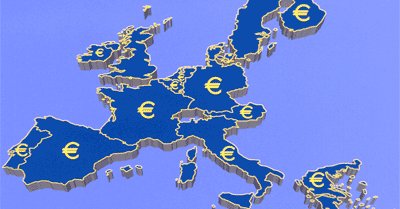It was the first European Council held in the official format under the Lisbon Treaty. The last European Councils since the entry of the new treaty were wisely held by van Rompuy in an informal manner enabling the European leaders to talk face to face without heavy entourages and publishing a short and concise document of 1-2 pages containing the most important elements. In contrast to those, this European Council had a document of 15 pages containing the usual bureaucratic points and preventing the leaders to talk frankly about the European house that is on fire.
The first sentence in this mostly hollow document starts in a very heroic tone: “The EU has met the worldwide financial crisis with united resolve and has done what was necessary to safeguard the stability of the Economic and Monetary Union.” Has it really? I would argue that the stability of the EMU is very far from any optimistic concept of stability as a lot of Economic analysts start to worry about its very existence in the coming months/years. Rather the new Eurozone crisis puts the members in an unprecedented situation.
To shortly put the finger on the current wound: forget Greece, which was just the trigger – the underlying problem of the Eurocrisis lies elsewhere. The problem is not the massive debts accumulated by the Greek or other European governments but the creation of the European and Monetary Union which created a situation that harmed the competitiveness of weaker countries. This occurred because of a lack of economic coordination and the decision not to accompany the economic union with a political (or fiscal) one.
Let’s try to think it through: after joining the monetary union the Member States did not only give up their monetary policies but were also exposed to the one and only interest rate set by the European Central Bank (ECB). As completely different countries such as Germany and Spain (to take them as a very good example) had to share a common interest rate, this had quite some effects. There was a huge capital inflow into for example Spain creating, on the one hand bubbles and on the other hand raising the real prices of services and in particularly of the wages thus creating a situation that massively harmed the competitiveness of those countries: while the wages went up in Spain, they remained stubbornly constant in Germany.
Instead of using the current window of opportunity for more closer economic coordination, the European Council digs further in economically contested terrain which might be the end of the EMU.
This continuous harm on the competitiveness is increased by other economic policies – so called beg-thy-neighbour policies. Germany is for example criticised of destabilising the Eurozone by forcing a high trade surplus and avoiding to stimulate the consumption – economists argue that as we have a common currency this is having an immediate effect on trade deficits of weaker countries (i.e. while it gives a boost to German exports it decreases Spanish exports).
The weaker countries are now unable to defend themselves with monetary policies (as it became a competence of the ECB) in order to adjust the competitiveness via the exchange-rates. If Germany and Spain were two states in the same country then there wouldn’t be any problem because there were fiscal transfers. The US for example is not homogenous from state to state but the federal fiscal system avoids that a single monetary policy might harm a state.
Now let’s come back to our suicide-commando, the European Council. The last Council showed that the German emphasise the fight of deficit instead of an improvement of European coordination prevailed. Nevertheless two relatively positive decisions resulted from that stance. First, the agreement was set in stone that there will be a “European Semester” in 2011, thus the Member States will be able to criticise the projected budgets of the other European countries before adoption. Recommendations for the implementation of this European Semester will be published in October – until the final implementation we will not know whether this idea will be watered down. The second positive decision was to agree on a strengthening of the Stability and Growth Pact including a more sustainable and flexible interpretation of middle-term debt.
By emphasising the deficits, the European Council avoided any real improvement of economic governance. The underlying problem concerns competitiveness and not the deficits as such. This gap of competitiveness has to be closed and there are some solutions already on the table but all of them were ignored by the European Council, as for example:
– A new independent body of economic strategic advisors on supranational level
– The right (e.g. of the Commission) to criticise ‘beg-thy-neighbour policies’
– A Eurobond to avoid the spread of interest-rates on government bonds
– An equilibration through transactions to create a level playing field (a step towards a fiscal union)
The European leaders are creating a very dangerous situation in Europe. In addition to such economic governance negligence, the fight against the deficits is also hotly discussed among economists – some arguing that a current slash of deficits in low -growth and high-unemployment countries might just aggravate the situation there. Thus instead of using the current window of opportunity for more closer economic coordination, the European Council digs further in economically contested terrain which might be the end of the EMU.
It is in our common interest to save the EMU: it is now or never to step up the economic integration – or we might lose one of the biggest steps in European integration.


Follow the comments: |
|
